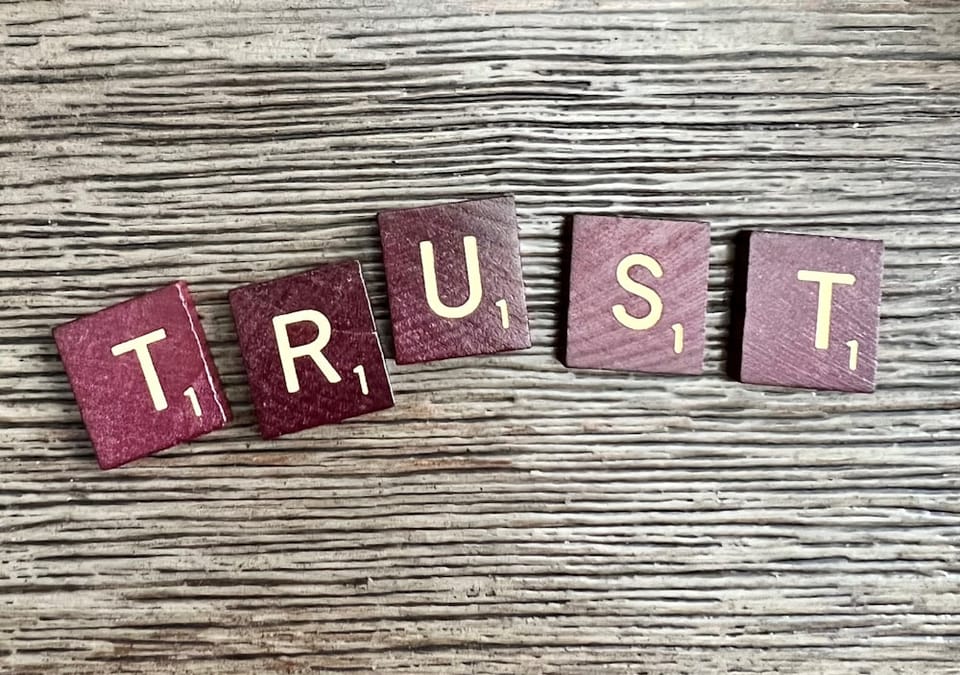The Surprising Power of Authenticity
Discover the stealth principle of success: Authenticity. It's not about being perfect, but being real. Dive in to learn how it shapes leaders.

The 2016 US Presidential election opened my eyes to a leadership principle I had devalued. Once I embraced it, I began experiencing greater and greater success as a leader. I’m talking about authenticity.
Are you underestimating it too? How would you rank authenticity in terms of leadership traits? Is it more important than having a bias for action? How about vs. possessing a sense of ownership? If you review Amazon’s famous leadership principles, which are used daily as a measuring stick and character guide (even for non-leaders), is “Be Authentic” a part of it? Yes, in fact, it is, but not in an obvious way. Here’s what Amazon says about “Earn Trust”:
“Leaders listen attentively, speak candidly, and treat others respectfully. They are vocally self-critical, even when doing so is awkward or embarrassing. Leaders do not believe their or their team’s body odor smells of perfume. They benchmark themselves and their teams against the best.”
Amazon might have said a lot of things that equate more directly to behaving in a trustworthy manner, such as keeping commitments, forgoing urges to shoplift, and never lying. Instead, they essentially describe what it means to be authentic. It’s a “stealth” principle, one I missed out on until an improbable political outcome shook my world view. Here’s how.
Every candidate in the 2016 election was coached, crafted, coiffed, and curated down to a microscopic level. They ended up coming across like a product. Expertly advised how not to piss off anyone, they gave the impression they could only think in sound bites. And then there was Trump, spouting in a stream of consciousness whatever popped into his mouth. His hair (or whatever that thing is) flew in all directions and flapped like a seagull. His opinions were astounding: polemic, inflammatory, toxically macho. He offered no remorse for his wild perspectives, never apologized for changing his mind, proudly exhibited racist and sexist tendencies, openly scorned opposition. The un-crafted message he conveyed, I suspect by accident, was that he could not be guided or controlled by political operators or, in fact, by anyone.
How could such a person get elected? Because those that were even slightly undecided were confronted with a decision between a robot and someone who was unmistakably human. However extreme and unbalanced, he was authentic. Yes, there was a lot more to it than that, but it is undeniable that his authentic presence had a huge impact. The fact that he was elected President or even remotely in the race for the role delivers a profound lesson on the power of authenticity in leadership.

I am no fan of Trump's, but I am fascinated with the human condition, especially as it pertains to leadership. Since 2016 I have observed with keen interest how authenticity plays a critical role in the workplace, and done my best to be my authentic, true self at work. To do that, I had to embrace authenticity and differentiate it from misconceptions of what it means to do it well.
Rather, authenticity is permitting those around you to see you for who you really are. It is the essence of relationships, which after all are the foundation of all interactions. Every person you interact with eventually forms beliefs about you, gauges your character and mettle, tries to predict your decisions, and makes choices themselves that could impact you.
Waking up to authenticity is an opportunity. The better your direct reports grasp your character and what you stand for, the greater the opportunity for you to gain their support and allegiance. Said differently, if you aren’t taking your own full measure each morning, and resolving to be as authentic as you are able, you may be missing out on many benefits experienced by authentic leaders, including:
- Hard decisions become easier. When you know and practice who you really are, it is often clearer which choice is more consistent with your character.
- Knowing, or having a better sense of your reactions to things, employees may feel more comfortable expressing ideas, disagreeing, and making bolder suggestions. This may not always be the case since it depends upon your willingness to hear them, but when you do it leads to better solutions and sometimes innovation.
- Connections and relationships with people occur more naturally and with surprising ease. This connection can expand to include the company you represent.
- You may find yourself an inspiration to others, which is nice in itself, but more importantly it results in stronger support for your decisions and your demands of your organization.
- You will engender trust, as Amazon implies. Being authentic taps into the same resonance of truth that I’ve discussed before, which draws people closer. You have an opportunity to add a penny to your cachet of support every time you open your mouth to speak.
Now consider the flipside. Do you find yourself doing any of these things?
- Apologizing when you are actually not sorry.
- Promising things you are not sure about or have no intention of fulfilling.
- Telling people what you think they want to hear.
- Misrepresenting your intentions or beliefs to avoid uncomfortable moments.
- Prioritizing being liked over being respected.
Those actions are easy, far easier than choosing an authentic path (which is bloody difficult). But in truth they are more evident to everyone as falsehoods than you might guess, and ultimately, they sacrifice the hearts, minds, and loyalty of your people.
If you are not deliberate about being authentic every chance you get, you may be punching holes in the hull of your ship as you cross the ocean, instead of opening sails to embrace the most powerful winds.




